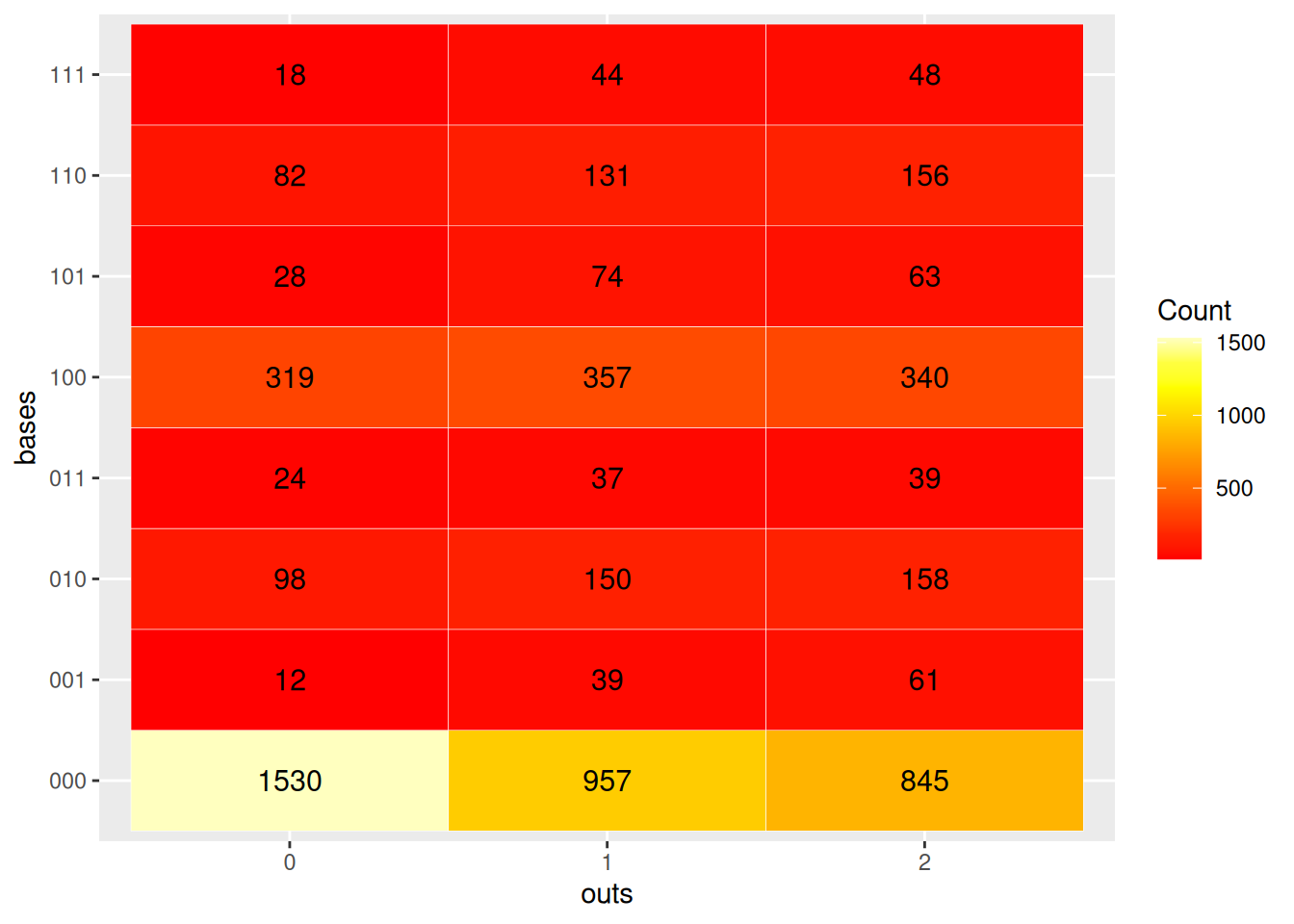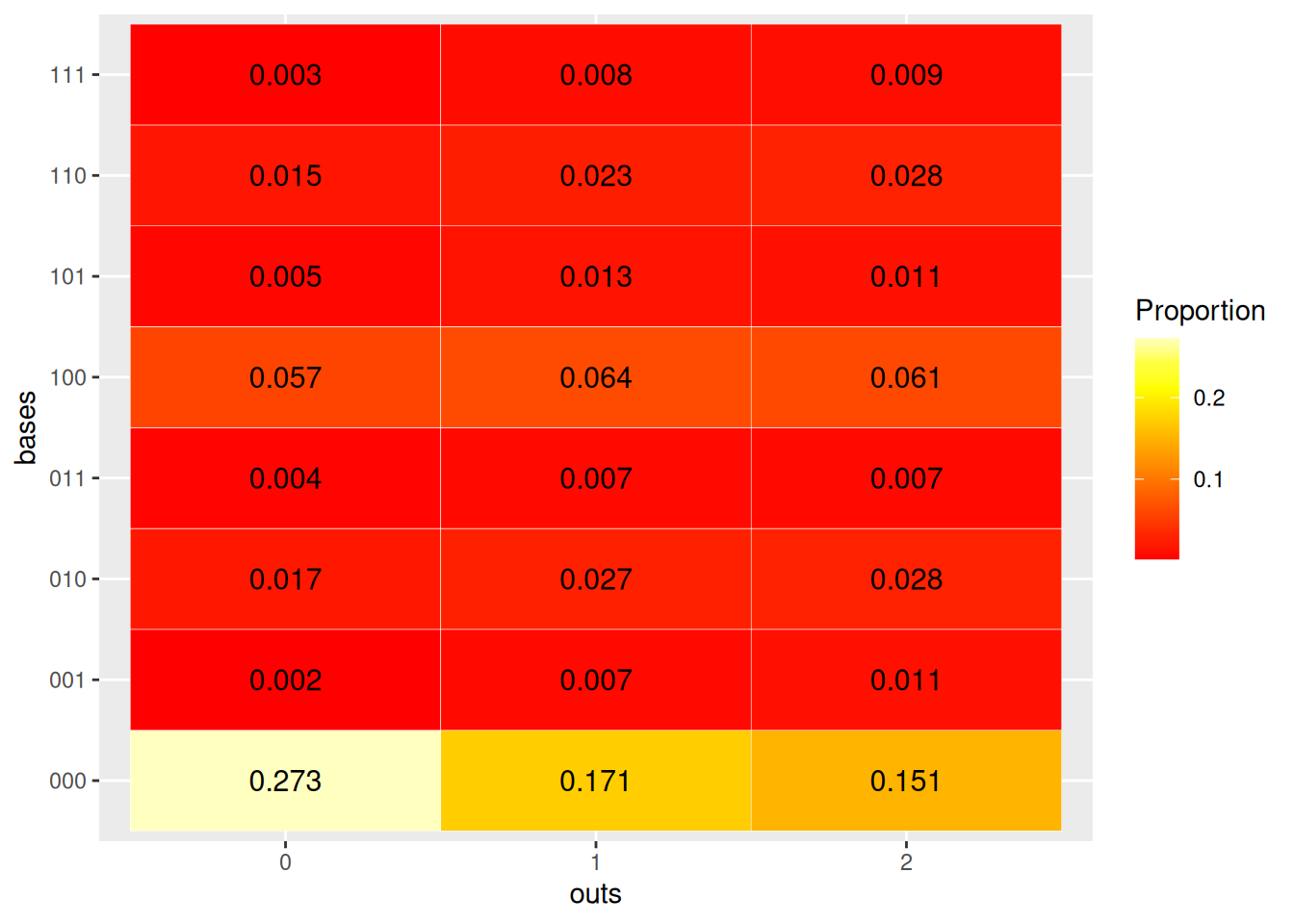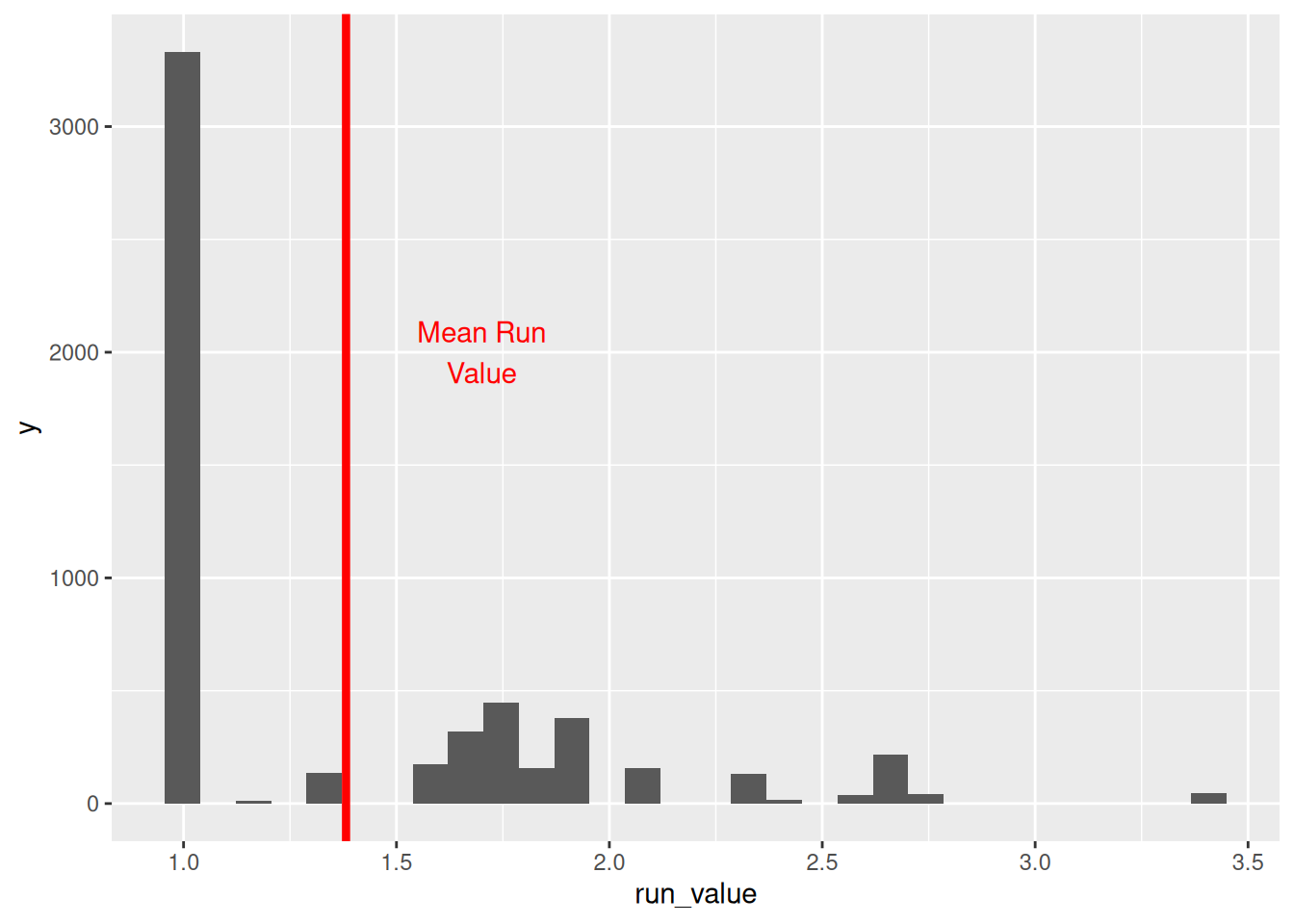5.8 Value of a home run
Batting average gives equal value to the four possible base hits.
## state
## 000 0 000 1 000 2 001 0 001 1 001 2 010 0 010 1 010 2 011 0 011 1 011 2 100 0
## 1530 957 845 12 39 61 98 150 158 24 37 39 319
## 100 1 100 2 101 0 101 1 101 2 110 0 110 1 110 2 111 0 111 1 111 2
## 357 340 28 74 63 82 131 156 18 44 48
## state
## 000 0 000 1 000 2 001 0 001 1 001 2 010 0 010 1 010 2 011 0 011 1 011 2 100 0
## 0.273 0.171 0.151 0.002 0.007 0.011 0.017 0.027 0.028 0.004 0.007 0.007 0.057
## 100 1 100 2 101 0 101 1 101 2 110 0 110 1 110 2 111 0 111 1 111 2
## 0.064 0.061 0.005 0.013 0.011 0.015 0.023 0.028 0.003 0.008 0.009
Assess by bases:
## 000 001 010 011 100 101 110 111
## 0.595 0.020 0.072 0.018 0.182 0.029 0.066 0.020Over half of the home runs are hit with no runners on base
What is the run value of a home run?
## # A tibble: 1 × 1
## mean_run_value
## <dbl>
## 1 1.38## `stat_bin()` using `bins = 30`. Pick better value with `binwidth`.
Most home runs occur with bases empty (1)
Which runner/out situations lead to the most valuable home runs?
## # A tibble: 1 × 3
## state new_state run_value
## <chr> <chr> <dbl>
## 1 111 2 000 2 3.41Bases loaded, 2 outs